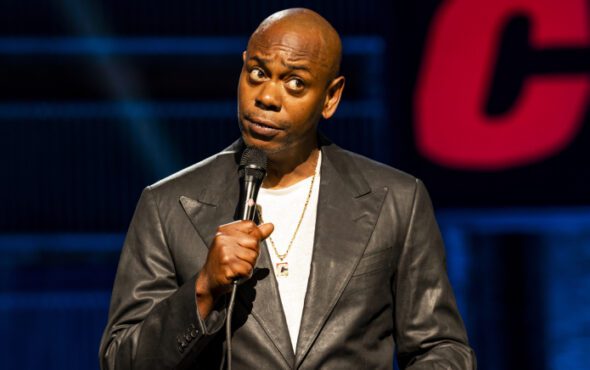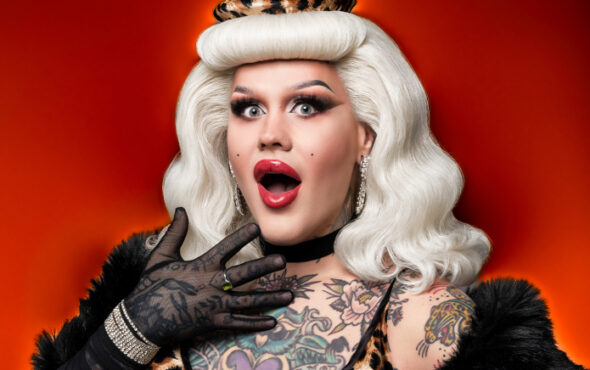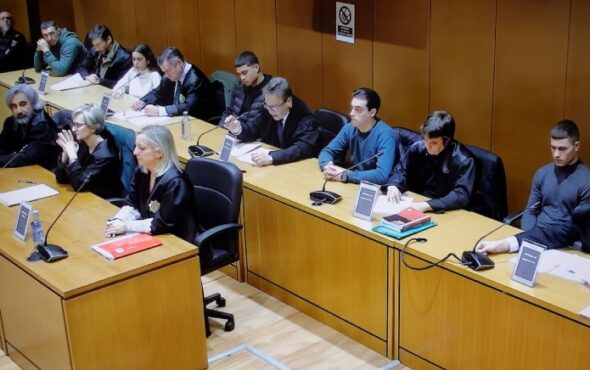
Transgender staff at Netflix walked out on 20 October in protest at the streaming giant’s decision to screen a show by a top U.S. comedian that has reignited a global row over trans rights.
The showdown between some employees and management, which is standing by its decision to air “The Closer”, a comedy special by Dave Chappelle, taps into a wider, often toxic debate between LGBTQ+ activists and some feminists over trans rights.
But how has the argument flared and what are its roots?
WHY SO CONTROVERSIAL?
Chappelle is widely known for an edgy brand of comedy, pushing the boundaries of what society deems acceptable in pursuit of humor.
However, many trans activists – and employees of Netflix – feel the comedian has gone too far, accusing him of transphobia.
Chappelle said he was on “team TERF”, an often derogatory reference to “transgender exclusionary radical feminists” or those who hold “gender critical” beliefs that sex is biological and immutable, and should not be conflated with gender identity.
“[TERFs] don’t hate transgender women but they look at trans women the way we Blacks might look at Blackface,” Chappelle said in the show.
“Gender is a fact, this is a fact. Every human being in this room, every human being on earth, had to pass through the legs of a woman to be on earth.”
Chappelle did not respond to a request for comment.
WHAT WAS THE REACTION TO THE SHOW?
Trans employees expressed outrage at the decision by their employer to screen the show and organised the walk-out in protest: a campaign that quickly drew strong support internally and from prominent voices across the entertainment industry.
“We ask the public to join us in holding Netflix accountable for repairing some of the harm it has caused,” said an internal statement about the walkout from Trans Employee Resource Group, seen by the Thomson Reuters Foundation.
“We are reminded that the first Pride was a riot led by our amazing Trans Siblings of color and it is our responsibility to ensure that we continue their protest.”
Some Netflix staff are wary of going public about the show, highlighting the sensitivity within the company.
“The content and marketing teams have been pretty silent around all of this,” said one employee who wished to remain anonymous for fear of online harassment.
Christopher Chavez, an associate professor of media studies and advertising at the University of Oregon, said the row revealed tensions over how to portray LGBTQ+ identities in media.
“On the one hand, you can argue that there is more trans and LGBTQ representation relative to past years,” Chavez said in a phone interview.
“That’s not saying much since the transgender community has historically been rendered invisible,” he said.
“Representation does not equal progress.”
HOW HAS NETFLIX RESPONDED?
Shortly after news of the walkout became public, Netflix said in a statement that it had fired the organizer for “sharing confidential, commercially sensitive information outside the company.”
Chief executive Ted Sarandos defended airing the special.
“[Netflix doesn’t] allow titles… that are designed to incite hate or violence, and we don’t believe ‘The Closer’ crosses that line,” Sarandos said in a memo to staff.
In a statement emailed to the Thomson Reuters Foundation, a spokesperson said the company valued its “trans colleagues and allies, and (understood) the deep hurt that’s been caused”.
“We respect the decision of any employee who chooses to walk out, and recognize we have much more work to do both within Netflix and in our content,” the spokesperson added.
brb walking out
— Most (@Most) October 20, 2021
WHY SO CONTROVERSIAL?
At the heart of the matter is whether trans rights are compatible with those of people designated female at birth, particularly in terms of access to single-sex spaces, such as rape crisis centers or women’s refuges.
Trans campaigners say transgender women are women and deserve equal access, a statement that clashes with the views of some feminists and lesbians.
In the United States, President Joe Biden has called for civil rights protections to be extended to include gender identity as well as sex.
However, since the start of the year, U.S. states have introduced more than 110 bills targeting trans rights, according to Human Rights Campaign, the main U.S. LGBTQ+ advocacy group.
In Britain, the debate has largely centered on a legal dispute over whether children should be allowed access to puberty blockers, which delay the onset of maturity.
Reporting by Sydney Bauer; Editing by Lyndsay Griffiths and Hugo Greenhalgh.
GAY TIMES and Openly/Thomson Reuters Foundation are working together to deliver leading LGBTQ+ news to a global audience.


